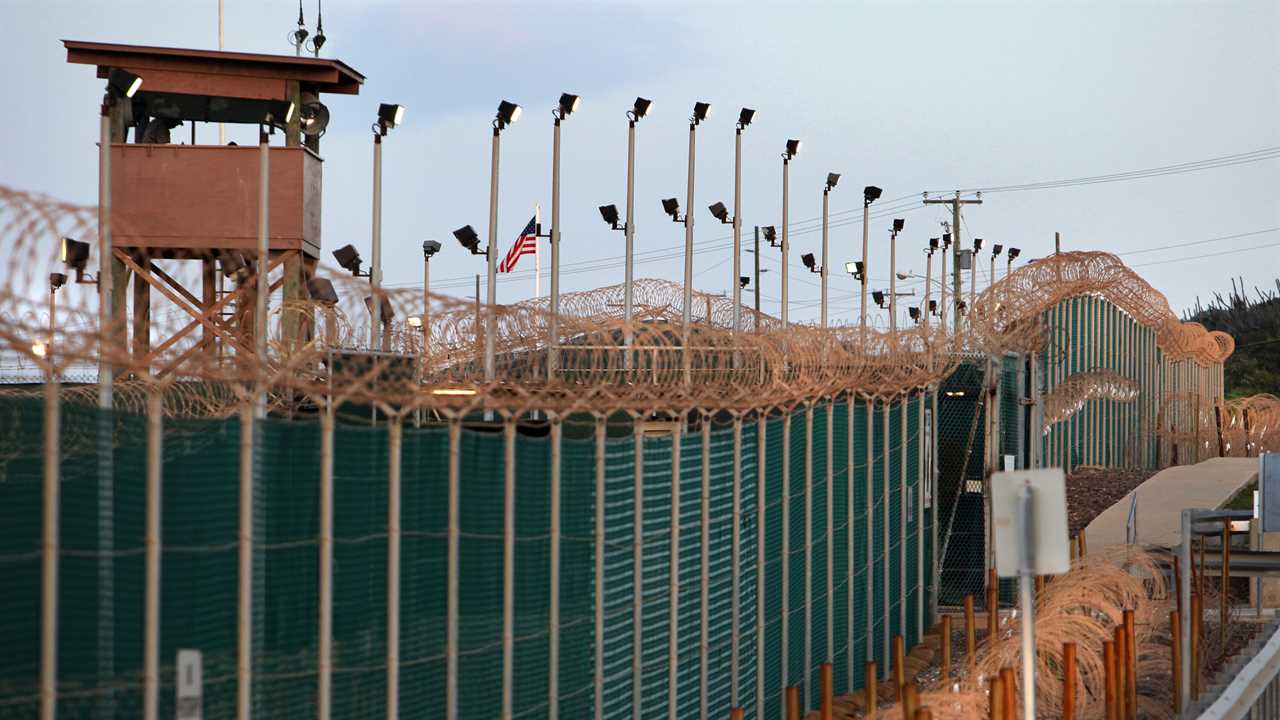
The Biden administration has approved three detainees at Guantánamo Bay for release to countries that agree to impose security conditions on them, including the oldest of the remaining wartime prisoners, lawyers and United States government officials said on Monday.
The approvals raised to nine the number of the 40 detainees currently at the wartime prison who have been approved for transfer to other countries. But it is unclear where the three men will go, or when, in part because the State Department has to make diplomatic and security arrangements with countries to take them.
Some of the other detainees who have been cleared for release over the years have been waiting for a decade for another country to agree to take them. In some instances, countries are asked to continue to jail the detainees or put them on trial. In most cases, they are asked to prevent them from traveling outside the country for at least two years.
Among those who have been granted approval is Saifullah Paracha, 73, of Pakistan, who was captured in Thailand in 2003. In addition to being the oldest of the detainees, he has also been described as among the sickest there, with heart disease, diabetes and high blood pressure.
The other two were identified as Abdul Rabbani, 54, also a citizen of Pakistan, and Uthman Abdul al-Rahim Uthman, 40, a Yemeni. None have been charged with a crime by the United States in the two decades they have been in custody.
Of the other remaining detainees, 12 have been charged with war crimes, one of them has been convicted, and 19 are considered too dangerous for transfer to the custody of another country.
Word that the men were approved for release initially came from their lawyers, who heard about it from prisoners in attorney-client telephone calls. Two government officials confirmed the three release decisions, but on the condition of anonymity because they were not authorized to discuss it.
The decision to approve the three releases, one official said, was made early last week by the attorney general, the director of national intelligence, the chairman of the Joint Chiefs of Staff and the secretaries of defense, homeland security and state. All of them have representatives who sit on the Periodic Review Board, the organization that assesses the threat posed by the detainees.
Mr. Rabbani was captured in a security services raid in Karachi, Pakistan, in 2002 with his brother, who is also held as a law-of-war prisoner at Guantánamo Bay. Both Rabbani brothers were held for more than 500 days by the C.I.A. before their transfer to U.S. military custody.
Mr. Uthman has been held longest of the three. He was brought to Guantánamo within days of the opening of Camp X-Ray in January 2002 as a suspected member of Osama bin Laden’s bodyguard corps. He was last turned down for release in 2018 in part because he lacked “credible plans to support himself upon transfer” and had not said how his family might support him.
Despite a pledge to renew the Obama administration effort to end detention operations at the Navy base in Cuba, the Biden administration has yet to restart the transfers. For now, it has not designated a senior U.S. official to negotiate the deals with other countries.
The Trump administration shut down the office of the special envoy for Guantánamo’s closing and transferred only one prisoner, a confessed Saudi terrorist who was repatriated in 2018 to serve his war crimes sentence at a rehabilitation center for former jihadists.
The last known U.S. transfer of a detainee from Guantánamo to Pakistan was in 2008. The United States stopped repatriating Yemenis in 2010 out of a concern that the government of Yemen could not monitor the men and prevent them from joining an Al Qaeda franchise there.
Mr. Paracha, a former businessman and longtime legal resident of New York, was captured during an F.B.I. sting operation in Thailand in July 2003. He was lured from his home in Karachi, Pakistan, to Bangkok to discuss what turned out to be a bogus merchandising deal with Kmart representatives. Instead, intelligence agents seized, hooded and shackled him and flew him to Afghanistan.
U.S. intelligence considered him a facilitator who helped the man accused of plotting the Sept. 11, 2001, attacks, Khalid Shaikh Mohammed, and Mr. Mohammed’s nephew, Ammar al-Baluchi, with financial transactions in Pakistan after the attacks. Both men are accused of conspiring in the Sept. 11 attacks, a capital case.
Mr. Paracha admitted to safeguarding about $500,000 for them, but said he was unaware of their identities or ties to Al Qaeda. He maintained that he had helped them as he would have helped any other fellow Muslim.
At the time of Mr. Paracha’s capture, his eldest son, Uzair Paracha, was arrested in the United States under suspicion of supporting terrorism. Uzair Paracha was subsequently tried, had his conviction overturned and returned to Pakistan last year in a deal with prosecutors to drop the case if he relinquished his status as a permanent resident of the United States.
Saifullah Paracha’s younger son, Mustafa Paracha, said in an interview last year that his father aspired to spend time with family upon his return to Pakistan, and a first concern would be to attend to his health care needs. Early in his detention, U.S. military doctors had airlifted a cardiac catheterization lab and surgical team to Guantánamo, but he refused to consent to the procedure out of concern about the quality of the medical care available to him there.
Typically, the Periodic Review Secretariat, which administers the board, publishes the justifications for making the release decisions on its website. The decisions usually include a recommendation for security assurance as well as the board’s recommendations for rehabilitation, repatriation or resettlement of the detainee who is approved for transfer. But it had not done so by Monday night.






